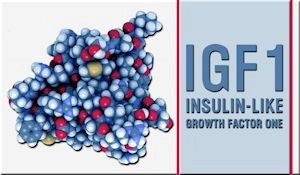Introduction to Human Growth Hormone (HGH)
Human Growth Hormone (HGH) is a naturally occurring hormone produced by the pituitary gland. It plays a crucial role in cell regeneration, growth, and maintaining healthy tissues in the body. In the realm of competitive sports, HGH has garnered significant attention due to its potential to enhance athletic performance. This article delves into the ethical considerations surrounding the use of HGH in sports, with a particular focus on American male athletes.
The Allure of HGH in Sports
For American male athletes, the temptation to use HGH can be substantial. The hormone is believed to increase muscle mass, reduce body fat, and improve recovery times, all of which can provide a competitive edge. In sports where physical prowess is paramount, such as football, baseball, and bodybuilding, the allure of HGH is particularly strong. Athletes may feel pressured to use these substances to keep up with or surpass their peers, leading to a complex ethical dilemma.
Ethical Concerns and Fair Play
The use of HGH in sports raises significant ethical concerns, primarily centered around the concept of fair play. When athletes use performance-enhancing substances like HGH, they gain an unfair advantage over those who compete without such aids. This undermines the integrity of the sport and erodes the principle of fair competition. For American male athletes, who often face intense scrutiny and pressure to perform, the decision to use HGH can be fraught with moral implications.
Health Risks and Long-term Consequences
Beyond the ethical considerations, the use of HGH poses potential health risks. While some athletes may experience short-term benefits, the long-term consequences can be severe. These include increased risk of diabetes, cardiovascular disease, and certain cancers. For American male athletes, who are often in the prime of their physical health, the decision to use HGH must be weighed against these potential health risks. The ethical question then becomes whether the pursuit of athletic success justifies the potential harm to one's health.
Regulatory Measures and Anti-Doping Policies
In response to the widespread use of HGH in sports, various regulatory bodies have implemented strict anti-doping policies. Organizations such as the World Anti-Doping Agency (WADA) and the National Collegiate Athletic Association (NCAA) have established guidelines to detect and penalize the use of performance-enhancing substances. For American male athletes, adherence to these policies is not only a legal requirement but also a moral obligation to uphold the integrity of their sport.
The Role of Education and Awareness
Education and awareness play a crucial role in addressing the ethical issues surrounding HGH use in sports. By educating American male athletes about the potential risks and ethical implications of using performance-enhancing substances, sports organizations can foster a culture of integrity and fair play. Programs that emphasize the importance of natural talent and hard work can help athletes resist the temptation to use HGH and other banned substances.
The Future of Sports Ethics
As the debate over HGH in sports continues, it is essential to consider the future of sports ethics. The ethical use of performance-enhancing substances will likely remain a contentious issue, but through continued dialogue and education, it is possible to promote a more ethical approach to athletic competition. For American male athletes, the challenge will be to balance the desire for success with the principles of fairness and integrity.
Conclusion
The use of Human Growth Hormone in competitive sports presents a complex ethical dilemma for American male athletes. While the potential for enhanced performance is alluring, the ethical concerns surrounding fair play, health risks, and regulatory compliance cannot be ignored. By fostering a culture of education and awareness, sports organizations can help athletes navigate these ethical challenges and uphold the integrity of their sport. Ultimately, the future of sports ethics will depend on the collective commitment to fair and honest competition.
Contact Us For A Fast And Professional Response

- Unlocking the Power of Diet on HGH: Foods That Naturally Boost Growth Hormone in American Males [Last Updated On: February 14th, 2025] [Originally Added On: February 14th, 2025]
- Sleep and HGH: Enhancing Male Health Through Better Sleep Quality [Last Updated On: February 25th, 2025] [Originally Added On: February 25th, 2025]
- The Prodigal Protein: Deciphering the Intricacies of Human Growth Hormone [Last Updated On: February 25th, 2025] [Originally Added On: February 25th, 2025]
- Igniting Potential: The Expansive Role of Human Growth Hormone in Life's Developmental Journey [Last Updated On: February 26th, 2025] [Originally Added On: February 26th, 2025]
- The Realities versus Expectations: Unfolding the Anti-Aging Promise of HGH [Last Updated On: February 27th, 2025] [Originally Added On: February 27th, 2025]
- A Deeper Dissection: The Pivotal Role Human Growth Hormone Plays in Physiology [Last Updated On: February 28th, 2025] [Originally Added On: February 28th, 2025]
- Deciphering the Enigma of HGH: A Comprehensive Guide for Novices on Human Growth Hormone [Last Updated On: February 28th, 2025] [Originally Added On: February 28th, 2025]
- Unveiling The Secrets of the Human Growth Hormone: A Journey From Cellular to System Response [Last Updated On: March 1st, 2025] [Originally Added On: March 1st, 2025]
- Orchestrating the Hormonal Symphony: The Interplay Between Human Growth Hormone and Other Hormones [Last Updated On: March 2nd, 2025] [Originally Added On: March 2nd, 2025]
- Exploring the Multifaceted Role of Human Growth Hormone in Enhancing Organ Health: Impacts on Cardiovascular, Liver, Renal, and Neurological Functions [Last Updated On: March 3rd, 2025] [Originally Added On: March 3rd, 2025]
- Exploring Growth Hormone Therapy: Uses, Benefits, and Ethical Concerns [Last Updated On: March 4th, 2025] [Originally Added On: March 4th, 2025]
- Comparing Natural and Synthetic Human Growth Hormone: Benefits, Risks, and Applications [Last Updated On: March 5th, 2025] [Originally Added On: March 5th, 2025]
- Exploring the Role of Human Growth Hormone in Male Health and Recovery [Last Updated On: March 6th, 2025] [Originally Added On: March 6th, 2025]
- Unleashing the Power of Exercise: How Workouts Boost Human Growth Hormone in American Males [Last Updated On: March 6th, 2025] [Originally Added On: March 6th, 2025]
- The Role of HGH in Muscle Growth: Mechanism, Benefits, and Natural Enhancement Strategies [Last Updated On: March 7th, 2025] [Originally Added On: March 7th, 2025]
- Understanding and Managing HGH Deficiency in American Males: Causes, Symptoms, and Treatments [Last Updated On: March 8th, 2025] [Originally Added On: March 8th, 2025]
- The Vital Role of Human Growth Hormone (HGH) in Men's Metabolism and Health [Last Updated On: March 9th, 2025] [Originally Added On: March 9th, 2025]
- Maximizing Athletic Excellence: The Role of HGH in Performance Enhancement [Last Updated On: March 14th, 2025] [Originally Added On: March 12th, 2025]
- Exploring New Horizons in Anti-Aging: The Advancements in HGH Therapy for American Males [Last Updated On: March 13th, 2025] [Originally Added On: March 13th, 2025]
- Unlocking Your Body's Potential: Lifestyle Strategies to Boost Natural HGH in American Males [Last Updated On: March 15th, 2025] [Originally Added On: March 15th, 2025]
- Human Growth Hormone: Legal, Ethical Challenges in Sports and Medicine [Last Updated On: March 17th, 2025] [Originally Added On: March 17th, 2025]
- Human Growth Hormone: Risks, Misuse, and Health Impacts on American Males [Last Updated On: March 18th, 2025] [Originally Added On: March 18th, 2025]
- Stress-Induced Cortisol Inhibits HGH in American Males: Mitigation Strategies [Last Updated On: March 18th, 2025] [Originally Added On: March 18th, 2025]
- Human Growth Hormone Therapy: Enhancing Pediatric Growth and Development [Last Updated On: March 18th, 2025] [Originally Added On: March 18th, 2025]
- HGH in Hormone Replacement Therapy: Longevity Benefits and Risks for American Males [Last Updated On: March 19th, 2025] [Originally Added On: March 19th, 2025]
- HGH's Potential Cardiovascular Benefits for American Males: A Comprehensive Overview [Last Updated On: March 19th, 2025] [Originally Added On: March 19th, 2025]
- HGH's Crucial Role in Bone Health for American Males Across Lifespan [Last Updated On: March 20th, 2025] [Originally Added On: March 20th, 2025]
- HGH Market Trends, Costs, and Impact on American Males: A Comprehensive Overview [Last Updated On: March 21st, 2025] [Originally Added On: March 21st, 2025]
- HGH Benefits for American Males: Muscle Gain, Fat Loss, and Risks [Last Updated On: March 21st, 2025] [Originally Added On: March 21st, 2025]
- HGH and IGF-1: Key Roles in Muscle, Bone, and Metabolic Health for American Males [Last Updated On: March 21st, 2025] [Originally Added On: March 21st, 2025]
- Human Growth Hormone: From Discovery to Applications for American Males [Last Updated On: March 21st, 2025] [Originally Added On: March 21st, 2025]
- Human Growth Hormone Decline in Aging Men: Effects and Management Strategies [Last Updated On: March 21st, 2025] [Originally Added On: March 21st, 2025]
- Debunking HGH Myths: Safety, Legality, and Realistic Benefits for American Males [Last Updated On: March 22nd, 2025] [Originally Added On: March 22nd, 2025]
- Innovative HGH Delivery Systems: Enhancing Therapy for American Males [Last Updated On: March 22nd, 2025] [Originally Added On: March 22nd, 2025]
- HGH's Cellular Impact on Growth, Muscle, and Metabolism in American Males [Last Updated On: March 22nd, 2025] [Originally Added On: March 22nd, 2025]
- HGH and Longevity: Benefits, Risks, and Future for American Males [Last Updated On: March 23rd, 2025] [Originally Added On: March 23rd, 2025]
- HGH's Impact on Immune Health in American Males: Benefits and Risks [Last Updated On: March 23rd, 2025] [Originally Added On: March 23rd, 2025]
- HGH Effects on Organ Function in American Males: A Comprehensive Overview [Last Updated On: March 23rd, 2025] [Originally Added On: March 23rd, 2025]
- HGH Production in American Males: Environmental Factors and Optimization Strategies [Last Updated On: March 23rd, 2025] [Originally Added On: March 23rd, 2025]
- Optimizing HGH for American Males: Diet, Exercise, Sleep, and Supplements [Last Updated On: March 23rd, 2025] [Originally Added On: March 23rd, 2025]
- Human Growth Hormone: Boosting Energy, Performance, and Well-being in American Males [Last Updated On: March 24th, 2025] [Originally Added On: March 24th, 2025]
- HGH's Role in Enhancing Wound Healing and Recovery for American Males [Last Updated On: March 24th, 2025] [Originally Added On: March 24th, 2025]
- HGH's Impact on Brain Function and Cognition in American Males [Last Updated On: March 24th, 2025] [Originally Added On: March 24th, 2025]
- HGH in Regenerative Medicine: Benefits and Risks for American Males [Last Updated On: March 24th, 2025] [Originally Added On: March 24th, 2025]
- Acromegaly in American Males: Symptoms, Risks, and Management Strategies [Last Updated On: March 24th, 2025] [Originally Added On: March 24th, 2025]
- Maximizing HGH Release: Sleep Strategies for American Males' Health and Vitality [Last Updated On: March 24th, 2025] [Originally Added On: March 24th, 2025]
- HGH's Role in Enhancing Bone Density and Preventing Osteoporosis in American Males [Last Updated On: March 24th, 2025] [Originally Added On: March 24th, 2025]
- HGH Therapy Advances: Enhancing Health for American Males [Last Updated On: March 25th, 2025] [Originally Added On: March 25th, 2025]
- HGH's Role in Muscle Recovery and Optimization Strategies for American Males [Last Updated On: March 25th, 2025] [Originally Added On: March 25th, 2025]
- Recombinant Human Growth Hormone: Benefits and Applications for American Males [Last Updated On: March 25th, 2025] [Originally Added On: March 25th, 2025]
- HGH Therapy: Enhancing Quality of Life in American Males with Chronic Illnesses [Last Updated On: March 26th, 2025] [Originally Added On: March 26th, 2025]
- HGH in Women: Benefits, Risks, and Ethical Considerations for Muscle, Bone, and Skin Health [Last Updated On: March 26th, 2025] [Originally Added On: March 26th, 2025]
- Human Growth Hormone: Impacts on Growth, Metabolism, and Aging in American Males [Last Updated On: March 26th, 2025] [Originally Added On: March 26th, 2025]
- Human Growth Hormone: Impact on American Males' Health and Aging [Last Updated On: March 26th, 2025] [Originally Added On: March 26th, 2025]
- HGH: Enhancing Skin Health and Youthfulness in American Men [Last Updated On: March 26th, 2025] [Originally Added On: March 26th, 2025]
- HGH Supplementation: Enhancing Cognitive Function in Aging American Males [Last Updated On: March 26th, 2025] [Originally Added On: March 26th, 2025]
- HGH and Aging: Benefits, Risks, and Holistic Vitality for Senior American Males [Last Updated On: March 27th, 2025] [Originally Added On: March 27th, 2025]
- High-Intensity Workouts Boost HGH: A Guide for American Males [Last Updated On: March 27th, 2025] [Originally Added On: March 27th, 2025]
- Managing HGH Deficiency in American Males: Traditional and Innovative Approaches [Last Updated On: March 27th, 2025] [Originally Added On: March 27th, 2025]
- Obesity's Impact on HGH Levels: Crucial Insights for American Males' Health [Last Updated On: March 27th, 2025] [Originally Added On: March 27th, 2025]
- HGH Therapy: Enhancing Men's Health with a Holistic Approach [Last Updated On: March 27th, 2025] [Originally Added On: March 27th, 2025]
- HGH's Role in Enhancing Post-Surgical Recovery for American Males [Last Updated On: March 27th, 2025] [Originally Added On: March 27th, 2025]
- HGH Therapy: Transforming Lives Through Case Studies in American Males [Last Updated On: March 27th, 2025] [Originally Added On: March 27th, 2025]
- HGH Synergy with Testosterone, Nutrition, Exercise, and Sleep for Men's Health Optimization [Last Updated On: March 27th, 2025] [Originally Added On: March 27th, 2025]
- HGH Innovations: Enhancing Health and Performance in American Males [Last Updated On: March 27th, 2025] [Originally Added On: March 27th, 2025]
- HGH's Role in Muscle Recovery and Athletic Performance for American Males [Last Updated On: March 28th, 2025] [Originally Added On: March 28th, 2025]
- HGH Supplements: Evaluating Effectiveness and Risks for American Males [Last Updated On: March 28th, 2025] [Originally Added On: March 28th, 2025]
- Intermittent Fasting Boosts HGH: Benefits for American Males' Health and Vitality [Last Updated On: March 28th, 2025] [Originally Added On: March 28th, 2025]
- HGH Testing Guide: Types, Preparation, Procedure, and Implications for American Males [Last Updated On: March 29th, 2025] [Originally Added On: March 29th, 2025]
- Genetics and HGH: Impact on Growth for American Males [Last Updated On: March 30th, 2025] [Originally Added On: March 30th, 2025]
- HGH in Sports: Ethics, Health Risks, and the Fight Against Doping [Last Updated On: April 2nd, 2025] [Originally Added On: April 2nd, 2025]
- HGH and Hormonal Balance: Lifestyle Strategies for American Males [Last Updated On: April 2nd, 2025] [Originally Added On: April 2nd, 2025]
- HGH's Impact on Cardiovascular Health in American Males: Benefits and Risks [Last Updated On: April 4th, 2025] [Originally Added On: April 4th, 2025]
- Mindfulness and Meditation Boost HGH Levels in American Males [Last Updated On: April 5th, 2025] [Originally Added On: April 5th, 2025]
- HGH Therapy: Benefits, Common Side Effects, and Risk Mitigation for American Males [Last Updated On: April 6th, 2025] [Originally Added On: April 6th, 2025]
- HGH's Impact on Liver Function and Detoxification in American Males [Last Updated On: April 7th, 2025] [Originally Added On: April 7th, 2025]
- HGH's Impact on Body Composition: Fat Loss, Muscle Gain, and Safety Considerations [Last Updated On: April 7th, 2025] [Originally Added On: April 7th, 2025]
- Personalized HGH Therapy: Tailoring Treatment to Genetic Profiles of American Males [Last Updated On: April 9th, 2025] [Originally Added On: April 9th, 2025]
- HGH Therapy for American Males: Benefits, Risks, and Considerations [Last Updated On: April 9th, 2025] [Originally Added On: April 9th, 2025]
- HGH: Enhancing Tissue Renewal and Vitality in American Men [Last Updated On: April 10th, 2025] [Originally Added On: April 10th, 2025]

















